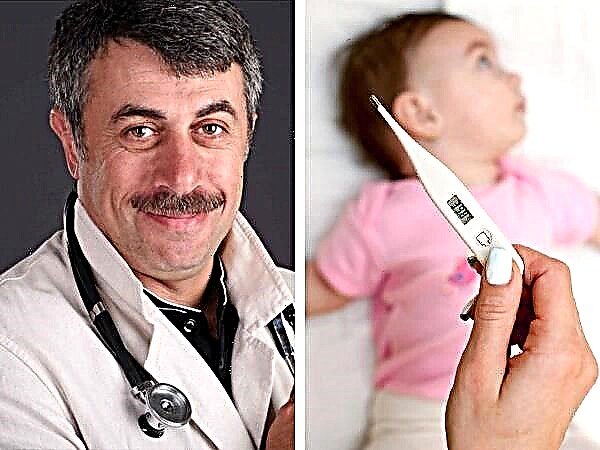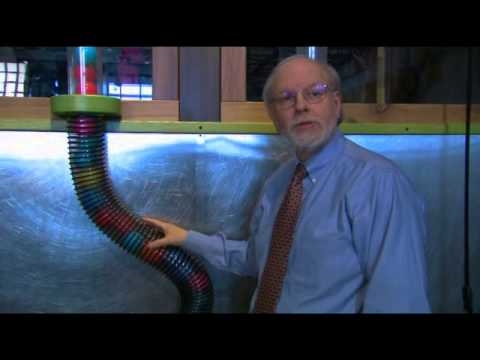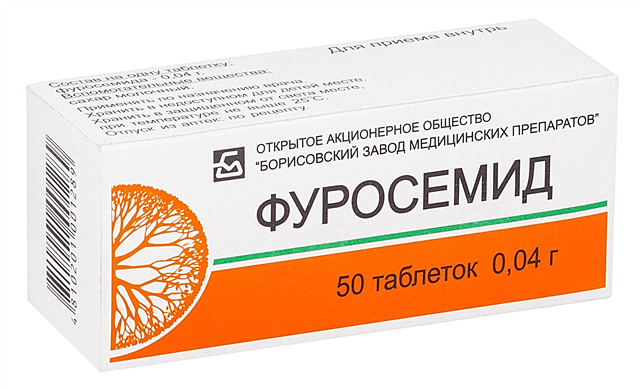Diarrhea in children can be very worrying as most of the parents are afraid of dehydration. When a child has diarrhea, parents wonder how to feed him with diarrhea to alleviate the condition? Sometimes diarrhea is common. Most children have diarrhea at least once or twice a year, which disappears after a couple of days. Fortunately, there are many foods available to help reduce the symptoms of diarrhea. There are also certain foods that should be avoided for diarrhea.
A child with persistent diarrhea requires a doctor's assessment, as dehydration can occur over time.
Diarrhea is three or more watery bowel movements per day. Loose, non-watery, pasty stools are not diarrheal, and frequent hard / normal stools are also not diarrhea. Acute diarrhea lasts several days, and persistent diarrhea is when the duration of watery stools exceeds two weeks.
Causes
Common causes of diarrhea:
- viral infections (rotavirus, adenovirus, norovirus);
- bacterial infections (E. coli, salmonella, shigella, campylobacter);
- parasitic infections (cryptosporidium, lamblia);
- food allergies and intolerances;
- food poisoning;
- antibiotic use:
- irritable bowel syndrome (IBS), celiac disease, Crohn's disease.

Symptoms
In addition to loose stools, diarrhea is also associated with other digestive symptoms, including:
- colic;
- bloating and pain;
- discharge of gases from the intestines;
- frequent use of the toilet;
- nausea;
- vomiting;
- fever.
If your child has diarrhea, do not hesitate to seek medical advice. Diarrhea is especially dangerous in newborns and infants, as it dehydrates after just a day or two. Child death from fluid loss can occur within a few days.
Diet for diarrhea
Diet is critical for a child with diarrhea. Some foods will help ease the symptoms of diarrhea, while others will make them worse.
For acute symptoms of diarrhea in a child, many advise avoiding coarse fiber because it contributes to watery stools. But this is not quite the case. This largely depends on the type of dietary fiber consumed by the child:
- there is fiber that dissolves in water and is easily broken down in the intestines. These types of fibers are prebiotic, they slow down the rate at which stool leaves the body, making it harder;
- insoluble fiber is not absorbed into the body but absorbs water as it passes through the digestive tract, thereby greatly softening the stool as it travels through the intestines.
As such, you will need to focus on soluble fiber foods to help rebuild children's intestinal flora to form harder stools.

During and shortly after an acute attack of diarrhea, the diet should focus on:
- replacing lost fluids and electrolytes;
- Avoiding certain foods that make diarrhea worse, such as fried foods
- the inclusion in the diet of easily digestible foods, such as plain rice.
Rehydration
Drinking fluids is very important for diarrhea to prevent dehydration and loss of vital electrolytes (sodium and potassium). Proper rehydration is especially important for children because they can die from dehydration in a short time.
While water is extremely important in preventing dehydration, it does not contain electrolytes. For children, doctors often recommend a special rehydration solution that contains the micronutrients they need, which are lost through diarrhea. You can buy this solution at a pharmacy. Examples of rehydration solutions include:
- Regidron;
- Tour;
- Hydrovit.
Substances that reduce diarrhea
There are a number of natural products that can help reduce diarrhea. They all contain one or more of three active ingredients: tannin, pectin, and vegetable glue.
- Tannins are chemicals that give some foods their hardness, that is, the ability to bind and compress tissue. They adhere to the protein molecules of the inflamed mucous membranes (that is, irritable bowel in case of diarrhea) and cause it to thicken, which slows down the absorption of toxins, helping the body retain fluids. TAnines are found in blackberry and raspberry leaves. The teas made from the leaves of these plants also replenish the fluid lost with diarrhea, which is important to prevent dehydration. Be sure to include foods that contain real leaves and not just flavors in your diet.
- Pectin is a type of soluble fiber that adds firmness to stools and soothes the digestive tract. Pectin-rich foods that should be included in the diet are apples, bananas, carrots.
- Plant glue is another powerful type of fiber. It soothes the digestive tract and makes stools harder. Plantain seeds are a generous source of this type of soluble fiber.
Pectin and herbal glue strengthen stools when they are too liquid and soften when they are too hard, so they are great for both diarrhea and constipation relief.
Super food for diarrhea
In fact, there is no food that will stop diarrhea immediately. But there are certain foods that can help reduce symptoms.
- apples. The pulp and skin of apples are rich in pectin, making this fruit one of the best foods for diarrhea. Apple pectin also helps with constipation because it doesn't soften stools much;
- tea. The tannins in tea strengthen the mucous membrane in the intestines, which helps the body absorb fluid while minimizing inflammation in the intestinal tract. The tea should be brewed without any herbs, spices or milk;
- blueberries and blueberries. These berries work well for diarrhea because they are rich in both tannins and pectin. It is better to use dried rather than fresh berries. And research shows that eating blueberries reduces the risk of colon cancer;
- carrot. Cooked carrots soothe the digestive tract and reduce diarrhea. Carrots also contain many nutrients that are lost during diarrhea;

- green onions, leeks, garlic. Eating foods rich in prebiotics (not to be confused with probiotics), which stimulate the growth of "good" bacteria in the digestive tract, can be helpful in preventing diarrhea. Natural sources of prebiotics include garlic, green onions, and leeks (they also have antiseptic properties). Eating large amounts of these foods will strengthen the immune system and prevent the development of bacteria that cause diarrhea;
- White rice. White rice and foods made from rice flour are fiber-free. Thus, it helps to make the stool significantly harder;
- bananas. A ripe banana is often a baby's first food because it is soft and easy to digest, making it an ideal meal for diarrhea. Bananas also contain a lot of potassium, which is lost in diarrhea;
- yogurt. Yogurt contains active bacteria such as L. thermophilus and L. bulgaricus that help prevent and stop diarrhea. After several studies, yogurt has been proven to be effective in treating a number of digestive disorders.

Foods That Can Cause Diarrhea
Certain foods can damage the intestines of children.
- Dairy products contain a natural sugar called lactose, which the baby cannot absorb due to lactase deficiency. However, many children with lactose intolerance can eat yogurt, which has lower levels of this enzyme than other dairy products.
- Fruit juice and honey contain a natural sugar called fructose, which, when consumed in excess, travels to the colon without being digested. This can cause fermentation processes that lead to flatulence and diarrhea.
- Vitamin C. Although the health benefits of vitamin C are incredible and it can actually protect the digestive tract by boosting immunity against unpleasant bacteria, excessive consumption of it can cause diarrhea. Large doses of vitamin C, especially over 1000 mg / day taken regularly, can cause gastrointestinal problems. If this happens to your child, reduce the dose until the problem goes away.
- Fruits and vegetables. If your child is not used to eating a lot of fruits and vegetables, and you suddenly start offering more than usual, then sometimes it leads to diarrhea: citrus fruits and beans are usually the culprit. Their consumption should be reduced and then introduced gradually.

How to feed a baby under one year old with diarrhea?
If your baby is less than six months old, you can safely feed him or her with breast milk or formula, except in cases of diarrhea due to lactose intolerance. In such situations, the doctor prescribes a lactose-free or hydrolyzed mixture. When a child is older than six months, you can offer him:
- applesauce and banana puree;
- mashed boiled potatoes;
- white rice porridge;
- mashed beets and carrots;
- baby porridge made from oatmeal or wheat.
You can give fruit to an infant with diarrhea, but remove the skin and seeds as they are difficult to digest.
Diet for children 1 - 3 years old
Offer the following foods when your child has diarrhea:
- bananas;
- boiled rice;
- boiled chicken;
- meat broth;
- applesauce;
- whole wheat bread;
- fresh vegetables: carrots, beets, squash (a type of pumpkin) and zucchini;
- baked or boiled potatoes.
Remember, your baby loses sodium during diarrhea, so add some salt to your baby's food. Children need no more than 2 g of salt per day.
Diet for children from 3 years old
Most doctors recommend continuing to eat solid foods if you have diarrhea. The best option is a diet that includes rice, bananas, toast, and applesauce, as they are gentle on the intestines. Other foods a child can eat for diarrhea:
- pasta;
- boiled eggs;
- baked or boiled lean meat;
- steamed vegetables: carrots, beets, squash, green beans;
- mushrooms;
- baked potato;
- grains such as oatmeal, cornflakes, and wheat (if the child is not allergic to gluten);
- pancakes, waffles and other white flour products;
- yogurt - bacteria in it are good for the intestines.

Foods prohibited for diarrhea
Here are some foods you should avoid for diarrhea in children:
- Spicy dishes. Spices will irritate the digestive tract.
- Fried food. The added fats and oils can be hard on the sensitive GI tract, and symptoms are more likely to get worse.
- Sweets. Sugars in the colon can destroy already sensitive bacteria, making diarrhea worse.
- Foods high in insoluble fiber. Fiber helps keep the digestive system working. This is usually fine, but if you have diarrhea, insoluble fiber will worsen symptoms.
Other foods to avoid:
- most processed foods (semi-finished products);
- raw vegetables;
- products that lead to fermentation processes in the intestines: cauliflower, broccoli, white cabbage;
- fat meat;
- dairy;
- citrus;
It is important to feed your baby frequently and in small meals instead of three or four large meals.
Diet after diarrhea
After diarrhea stops, your priority should be to provide your child's body with nutrients that will help speed up recovery.
- probiotics. These drugs help replenish the intestines with good bacteria to restore optimal balance.
Pediatricians report that the use of probiotics will help treat infectious diarrhea in young children, especially rotavirus disease.

- nutrition. As a rule, it is recommended to eat simple foods, especially on the first day of diarrhea attacks. This can be: boiled potatoes, toast, crackers with salt, baked chicken without skin or fat. It is better to eat denser, softer foods, including oatmeal, bananas, and applesauce, plain rice.
As soon as the child's condition improves, it is important to gradually introduce regular foods so that the child's digestive system is not overloaded.
Using diet to diagnose the causes of chronic diarrhea
When the doctor suspects that the diarrhea is caused by food intolerances or allergies, ask them to avoid foods that contain:
- lactose, which is present in dairy products and leads to diarrhea in children with lactase deficiency;
- carbohydrates;
- gluten, found in barley, rye, wheat (if the doctor suspects celiac disease);
- other substances.
This is necessary in order to find out if diarrhea is reduced by changing the diet.
Diet for IBS
IBS is a disease in which the function of the colon is impaired. Common symptoms of IBS include abdominal cramping, bloating, constipation, and diarrhea.
For many children with IBS, a diet can help control symptoms. However, each diet will be slightly different because the types of foods that are good for one can hurt another, and vice versa. Thus, one of the first steps for parents of children with IBS is to become familiar with foods that are known to worsen symptoms.
Many parents report that children with IBS get diarrhea worse after eating certain foods:
- dairy;
- chocolate;
- caffeine drinks;
- spicy foods;
- some raw vegetables and fruits, especially broccoli and cabbage;
- fruit juices;
- beans;
- bow;
- artificial sweeteners;
- high-fat foods such as butter, red meat, and nuts.
Diet for celiac disease
Celiac disease is a disease in which the small intestine is damaged, which interferes with the absorption of nutrients from food. Children with celiac disease cannot tolerate a protein called gluten, found in barley, rye, and wheat.
For a child diagnosed with celiac disease, treatment is a gluten-free diet for life.
Such a diet involves the elimination of foods containing rye, wheat and barley from the diet. Products made from these grains are also not allowed. Despite these limitations, children with celiac disease can eat a well-balanced diet with a variety of foods, including gluten-free bread and pasta. For example, they may eat potatoes, rice, soybeans, buckwheat, or bean flour products instead of wheat flour.
Gluten-free products are becoming more readily available in convenience stores.

Conclusion
In many cases, children's diarrhea lasts only a few days and responds well to home treatment. Increasing fluid intake and following a simple diet can all help reduce symptoms quickly.
If the child's body does not respond to these procedures, it should be shown to a specialist for diagnosis and treatment.



